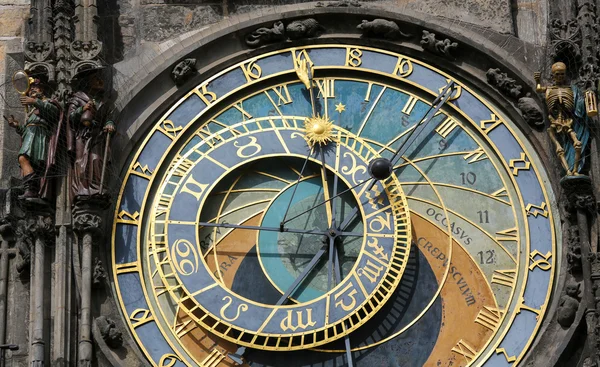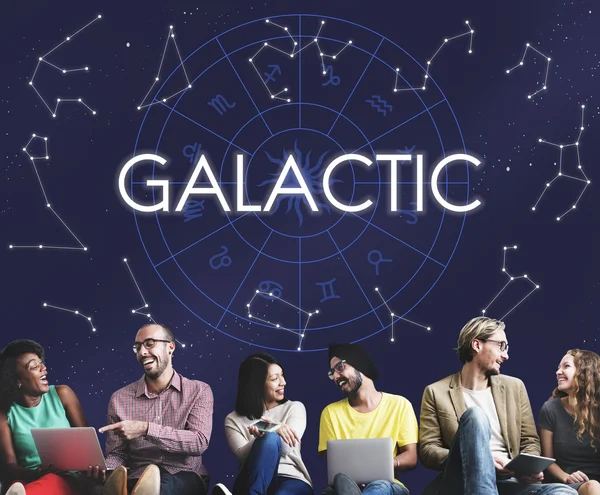Humanity is said to be entering a new astrological age known as the Age of Aquarius. This concept has been popularized in culture and media, with many people wondering what it means for them and the world at large.
Astrological ages are determined by the position of the vernal equinox in relation to the stars, and each age is said to last around 2,160 years.
The Age of Aquarius is believed to be characterized by a focus on community, collaboration, and humanitarianism. People may feel drawn to work together towards a common goal, and there may be a greater emphasis on social justice and equality.
This age is also associated with technological innovation and the potential for significant advancements in science and medicine. While some may view the Age of Aquarius as a time of peace and harmony, others may see it as a period of upheaval and change.
Table of Contents
Understanding Astrological Ages

Astrological ages refer to the periods of time that are defined by the precession of the equinoxes. The precession of the equinoxes is the slow movement of the Earth’s axis, which causes the position of the stars to shift over time.
The ages are defined by the constellation that is in alignment with the vernal equinox at the beginning of each age.
Each astrological age lasts for approximately 2,160 years. There are 12 zodiac signs, so it takes approximately 25,920 years for the Earth to complete a full cycle through all 12 signs. This is known as a Great Year.
Astrologers believe that each astrological age is associated with a different set of qualities and characteristics. For example, the Age of Pisces, which began around 1 AD and ended around 2000 AD, is associated with spirituality, compassion, and sacrifice.
The Age of Aquarius, which is the current astrological age, began around the year 2000 and is associated with innovation, technology, and social change. Some astrologers believe that the Age of Aquarius represents a time of great transformation and evolution for humanity.
It is important to note that not all astrologers agree on the exact dates and qualities of each astrological age. However, the concept of astrological ages remains a popular and intriguing topic in astrology and beyond.
The Age of Pisces
The Age of Pisces is the era that preceded the current Age of Aquarius. It is believed to have begun around 498 C.E. and ended around 2012 C.E. The Age of Pisces is characterized by the archetype of Pisces, which is associated with themes such as sacrifice, suffering, and spirituality.
During the Age of Pisces, there were many wars and conflicts that were driven by the pursuit of power and control. This can be seen in the rise and fall of empires, such as the Roman Empire and the Ottoman Empire.
The Piscean Age was also marked by the dominance of organized religion, which often used fear and guilt to maintain its power over the masses.
Despite the suffering and turmoil of the Piscean Age, it also gave rise to many great spiritual and artistic movements. The Age of Pisces saw the birth of major religions such as Christianity and Islam, as well as the emergence of great spiritual teachers such as Buddha and Jesus.
It was also a time of great artistic expression, with the Renaissance and Baroque periods producing some of the most beautiful and enduring works of art in history.
Overall, the Age of Pisces was a time of great complexity and contradiction. While it was marked by war, suffering, and the abuse of power, it also gave rise to some of the most profound spiritual and artistic movements in history.
As humanity moves into the Age of Aquarius, it is important to reflect on the lessons of the Piscean Age and strive to create a more just and equitable world for all.
Transition to the Age of Aquarius

The transition from the Age of Pisces to the Age of Aquarius is a topic of great interest among astrologers and spiritualists. The Age of Pisces, which began around 1 AD, is associated with religion, sacrifice, and spirituality.
The Age of Aquarius, on the other hand, is associated with innovation, technology, and humanitarianism. The transition from one age to another is a gradual process that takes place over thousands of years.
One of the most significant astrological events that marked the beginning of the Age of Aquarius was the Great Conjunction of Jupiter and Saturn on December 21, 2020. This conjunction occurred at 0 degrees of Aquarius, which is a highly significant point in the precession of the equinoxes.
The precession of the equinoxes is a slow, cyclical movement of the Earth’s axis that takes about 26,000 years to complete.
Astrologers believe that the Great Conjunction of 2020 marked the beginning of a new era of innovation, progress, and humanitarianism. The Age of Aquarius is said to be a time of great change and transformation, both individually and collectively.
It is a time when humanity will be called upon to embrace new technologies, new ideas, and new ways of living.
While the transition to the Age of Aquarius is expected to be gradual, there are already signs that we are moving in this direction. For example, the rapid pace of technological advancement in recent years is seen as a sign of the increasing influence of Aquarian energy.
The rise of social media, renewable energy, and other innovative technologies are all seen as manifestations of the Aquarian spirit.
In conclusion, the transition from the Age of Pisces to the Age of Aquarius is a gradual process that is expected to take place over thousands of years. The Great Conjunction of 2020 is seen as a significant astrological event that marked the beginning of a new era of innovation, progress, and humanitarianism.
The Age of Aquarius is a time of great change and transformation, and it is up to each individual to embrace the new energies and ideas that are emerging.
Characteristics of the Age of Aquarius
The Age of Aquarius is believed to be a time of great change, marked by the shift from the previous Age of Pisces. This new age is characterized by a focus on individuality, intellect, and community. Here are some of the key characteristics of the Age of Aquarius:
Freedom
The Age of Aquarius is associated with the concept of freedom. This new age is believed to be a time when people will be free to express themselves in new and innovative ways. This freedom will also extend to ideas and beliefs, allowing people to explore new ways of thinking and living.
Love and Peace
The Age of Aquarius is also associated with the concepts of love and peace. This new age is believed to be a time when people will be more open to love and will be able to experience deeper levels of connection with others.
Additionally, the focus on peace will be a key element of this new age, with people working towards creating a more harmonious world.
Community
The Age of Aquarius is marked by a focus on community. This new age is believed to be a time when people will work together to create a better world. This will involve a shift away from individualism towards a more collective approach to life.
Equality
The Age of Aquarius is also associated with the concept of equality. This new age is believed to be a time when people will work towards creating a more equal society, where everyone has access to the same opportunities and resources.
Individuality
Although the Age of Aquarius is marked by a focus on community, it is also a time of individuality. This new age is believed to be a time when people will be free to express their unique talents and abilities. This will lead to a more diverse and creative society.
Intellect
Finally, the Age of Aquarius is characterized by a focus on intellect. This new age is believed to be a time when people will value knowledge and education more highly.
This will lead to a more informed and enlightened society, where people are able to make better decisions based on a deeper understanding of the world around them.
Influence on Society and Culture

The Age of Aquarius is expected to bring significant changes to society and culture. As the world transitions from the Age of Pisces to the Age of Aquarius, there will be a shift in consciousness toward unity, equality, and community.
This shift will bring about changes in the way society functions, the values it upholds, and the beliefs it holds dear.
One of the most significant changes that the Age of Aquarius is expected to bring about is a greater emphasis on human rights.
As people become more aware of the interconnectedness of all life and the importance of community, there will be a greater focus on ensuring that everyone is treated fairly and with respect.
This will lead to changes in laws, policies, and social norms, as well as a greater emphasis on individual responsibility and accountability.
The Age of Aquarius is also expected to usher in a new era of creativity and innovation. As people become more in tune with their inner selves and the world around them, they will be inspired to create new art, music, literature, and other forms of expression.
This will lead to a flourishing of culture, with new ideas and perspectives emerging that challenge the status quo and push society forward.
At the same time, the Age of Aquarius is expected to bring about a greater emphasis on spirituality and consciousness. As people become more aware of the interconnectedness of all things and the importance of living in harmony with nature, there will be a greater focus on spiritual growth and development.
This will lead to a greater appreciation for diverse spiritual practices and beliefs, as well as a greater emphasis on personal growth and self-discovery.
Overall, the Age of Aquarius is expected to bring about significant changes to society and culture. As people become more aware of the interconnectedness of all life and the importance of community, there will be a greater emphasis on human rights, creativity, spirituality, and consciousness.
These changes will lead to a more harmonious and balanced world, where people live in harmony with each other and with the natural world.
Technological Advancements in the Age of Aquarius
The Age of Aquarius is often associated with technological advancements and modernization. It is believed that this astrological age will bring significant changes in the way humans communicate and access information.
As the world becomes increasingly connected, technology will play a crucial role in shaping society.
One of the most significant technological advancements in the Age of Aquarius is the rise of the internet. The internet has revolutionized the way people communicate, access information, and conduct business. It has created new opportunities for people to connect with each other and share ideas.
The internet has also made it easier for people to access education and job opportunities.
Another significant technological advancement in the Age of Aquarius is the development of artificial intelligence (AI). AI has the potential to transform many aspects of society, from healthcare to transportation.
It is expected to play a significant role in improving efficiency and productivity in various industries.
The Age of Aquarius is also expected to bring significant changes in the way people communicate. Social media platforms have already transformed the way people interact with each other. As technology continues to evolve, it is expected that new forms of communication will emerge.
In conclusion, the Age of Aquarius is expected to bring significant technological advancements and modernization. These changes will have a significant impact on the way people communicate, access information, and conduct business.
As technology continues to evolve, it is essential to embrace these changes and adapt to the new reality of the world.
Astrological Implications

Astrological ages are defined by the movement of the Earth’s axis, which causes the position of the sun to shift through each of the zodiac signs over a period of approximately 2,150 years. The Age of Aquarius is said to represent a time of enlightenment, progress, and innovation.
In this section, we will explore the astrological implications of entering the Age of Aquarius and what it means for humanity.
Jupiter is the ruling planet of Aquarius, and its influence is said to bring about expansion, growth, and abundance. Mars, on the other hand, is the traditional ruler of Aquarius and is associated with energy, drive, and action.
The combination of these two planets is believed to bring about a period of great progress and innovation, particularly in the fields of science, technology, and social reform.
Uranus is also closely associated with Aquarius and is said to represent sudden change, upheaval, and revolution. As we enter the Age of Aquarius, we can expect to see significant shifts in societal norms, particularly in areas related to politics, social justice, and individual freedom.
Saturn, the planet of structure and discipline, is traditionally associated with the previous age of Capricorn.
However, as we transition into the Age of Aquarius, Saturn’s influence will still be felt, but in a more supportive role. Its energy will help to provide stability and structure to the changes brought about by the Age of Aquarius.
The astrological signs of Aries, Taurus, Gemini, Cancer, Leo, Virgo, Libra, Scorpio, and Sagittarius will all be affected by the shift into the Age of Aquarius. However, the air signs of Aquarius, Gemini, and Libra are believed to be particularly influenced by this astrological age.
In conclusion, the Age of Aquarius represents a time of great change and progress for humanity.
The astrological implications of this shift suggest that we can expect significant advancements in science, technology, and social reform, as well as societal shifts in areas related to politics, social justice, and individual freedom.
The Celestial Sphere and Precession
The celestial sphere is an imaginary sphere projected into space that represents the entire sky, with an observer on Earth at its center.
It is a useful tool for astronomers to locate and track celestial objects, including stars, planets, and constellations. The celestial sphere is divided into two halves, the northern and southern hemispheres, by the celestial equator, an imaginary line that runs around the sphere’s equator.
Precession is the slow wobble of the Earth’s rotation axis on the celestial sphere. It is caused by the gravitational pull of the Sun and Moon on the Earth’s equatorial bulge. This wobble causes the position of the celestial equator to shift over time, which affects the location of the equinoxes.
The equinoxes are the two points on the celestial sphere where the celestial equator intersects the ecliptic, the apparent path of the Sun across the sky.
There are two equinoxes each year: the March equinox, also known as the vernal equinox, and the September equinox, also known as the autumnal equinox. The vernal equinox marks the beginning of spring in the northern hemisphere and autumn in the southern hemisphere.
The Age of Aquarius is said to begin when the vernal equinox point moves from in front of the constellation Pisces to in front of the constellation Aquarius.
This shift is caused by precession, and it takes approximately 25,800 years for the Earth’s rotation axis to complete one full wobble. Each of the 12 astrological ages lasts approximately 2,148 years.
While precession has been known since ancient times, it was not until the 16th century that the Dutch astronomer Simon Marius discovered that it was caused by the Earth’s rotation.
Precession has had practical implications for space travel, as it affects the position of the stars in the sky relative to the Earth. Astronomers must take precision into account when calculating the position of stars and other celestial objects.
Astrology, Astronomy, and the International Astronomical Union

Astrology and astronomy have a long and complex relationship. While astrology is often criticized for being unscientific, it has a rich history and cultural significance. Astronomy, on the other hand, is a scientific discipline that studies celestial objects and phenomena.
The International Astronomical Union (IAU) is an organization that oversees astronomical research and nomenclature. It is responsible for naming celestial objects and defining astronomical constants. The IAU has also made several statements regarding astrology.
In 1952, the IAU issued a resolution stating that astrology is not a science. In 1973, the IAU issued another statement reaffirming this position.
While the IAU’s position on astrology is clear, some astronomers have expressed interest in studying the cultural significance of astrology.
Nick Campion, a historian of astrology, has argued that astrology is an important part of human culture and should be studied as such. He has also criticized the IAU for being too dismissive of astrology.
Despite these debates, the distinction between astrology and astronomy remains clear. Astronomy is a scientific discipline that seeks to understand the universe through empirical observation and experimentation.
Astrology, on the other hand, is a cultural practice that seeks to understand the relationship between celestial objects and human affairs.
In conclusion, the relationship between astrology and astronomy is complex and multifaceted. While the IAU has taken a clear stance on the scientific validity of astrology, some astronomers have expressed interest in studying its cultural significance.
Ultimately, the distinction between astrology and astronomy remains clear, and each discipline has its own unique contributions to our understanding of the universe.
The Great Year and the Great Age
Astrologers believe that the Earth’s inhabitants experience major changes in culture, society, and politics during a cycle of twelve astrological ages, known as the Great Year.
The Great Year lasts approximately 25,800 years and is defined as the period of one complete cycle of the equinoxes around the ecliptic. Each astrological age corresponds to one of the twelve zodiacal signs in Western astrology.
During each astrological age, humanity experiences a different set of values, beliefs, and cultural norms. According to astrological theory, the current age, which began around 2000 CE, is the Age of Pisces, characterized by themes of sacrifice, spirituality, and compassion.
As the Great Year progresses, the Earth’s axial precession causes the vernal equinox to gradually shift through the zodiacal signs, marking the transition from one astrological age to another.
The next astrological age, which is believed to be the Age of Aquarius, is expected to begin soon, although the exact timing of this transition is a matter of debate among astrologers.
The Age of Aquarius is associated with themes of innovation, progress, and expansion. Advocates of the Age of Aquarius believe that humanity is poised to undergo a period of rapid technological advancement and spiritual growth, leading to a new era of peace, harmony, and prosperity.
However, skeptics argue that the concept of astrological ages is not supported by scientific evidence and that the transition to the Age of Aquarius is unlikely to have any significant impact on human society.
Despite the controversy surrounding the concept of astrological ages, it remains a popular topic of discussion among astrologers and enthusiasts of esoteric spirituality.
The Vitruvian Man, Chakras, and Energy Centers
The Vitruvian Man is a famous drawing created by Leonardo da Vinci around 1487. The drawing is a representation of the human body that reflects the concept of sacred geometry.
The proportions of the human body depicted in the drawing are based on the work of the ancient Roman architect Vitruvius. The drawing depicts an idealized nude male standing within a square and a circle. The Vitruvian Man is considered a masterpiece of proportional sacred geometry.
Chakras, or energy centers, were added to the Vitruvian Man drawing later. Chakras are energy centers in the body that are believed to be associated with different physical, emotional, and spiritual functions. There are seven chakras in the body, each associated with a different color and element.
The chakras are believed to be connected to the body’s energy system and can be balanced and activated through meditation and other practices.
The Vitruvian Man drawing with chakras added is a powerful symbol of the connection between the physical body and spiritual energy.
It represents the idea that the body and spirit are interconnected and that by balancing and activating the chakras, one can achieve greater physical, emotional, and spiritual health.
In astrology, the Age of Aquarius is either the current or forthcoming astrological age, depending on the method of calculation. The Age of Aquarius is associated with the idea of spiritual awakening and the evolution of human consciousness.
The Vitruvian Man drawing with chakras added is a powerful symbol of this spiritual awakening and the connection between the physical body and spiritual energy.
It represents the idea that by balancing and activating the chakras, one can achieve greater physical, emotional, and spiritual health, which is essential for the evolution of human consciousness.
Spiritual and Personal Growth in the Age of Aquarius

The Age of Aquarius is believed to be a time of great spiritual and personal growth for humanity. As we move away from the individualistic and materialistic values of the Age of Pisces, we are entering a new era of collective consciousness and interconnectedness.
One of the key aspects of spiritual growth in the Age of Aquarius is an increased emphasis on wisdom and knowledge.
People are seeking a deeper understanding of themselves and the world around them, and are turning to ancient spiritual traditions and practices such as meditation and mindfulness to achieve this.
Empathy and compassion are also becoming more important in the Age of Aquarius, as people recognize the interconnectedness of all beings and seek to live in harmony with each other and the planet.
This shift in perspective is leading to a greater focus on social justice and environmentalism, as people recognize the need to work together to create a more equitable and sustainable world.
Inspiration and creativity are also flourishing in the Age of Aquarius, as people tap into their inner wisdom and express themselves in new and innovative ways.
This can be seen in the rise of new forms of art and music, as well as in the growing popularity of alternative healing modalities such as energy work and herbal medicine.
Overall, the Age of Aquarius represents a time of great opportunity for spiritual and personal growth. By embracing wisdom, empathy, inspiration, and perspective, individuals can tap into their full potential and contribute to the creation of a more just and harmonious world.
Economic and Political Changes
As humanity transitions into the Age of Aquarius, significant economic and political changes are expected to occur. This transition is believed to be a time of increased innovation and progress, leading to economic growth and development.
One of the key factors contributing to this growth is the shift towards a more globalized economy. As barriers to trade and communication are broken down, businesses will have access to a larger customer base, leading to increased competition and innovation.
Additionally, the rise of digital technologies and automation is expected to lead to increased efficiency and productivity, further driving economic growth.
Politically, the Age of Aquarius is expected to bring about a shift towards more democratic and egalitarian systems of governance. As people become more connected and informed, they are likely to demand greater transparency and accountability from their leaders.
This may lead to a rise in participatory forms of democracy, such as direct democracy and citizen assemblies.
Moreover, the Age of Aquarius is expected to bring about a shift towards more environmentally sustainable policies. As the impacts of climate change become more apparent, governments and businesses will be forced to take action to mitigate their effects.
This may lead to increased investment in renewable energy and other forms of sustainable infrastructure.
Overall, the transition into the Age of Aquarius is expected to bring about significant economic and political changes. While the exact nature of these changes remains uncertain, it is clear that the world is entering a new era of innovation and progress.
Conclusion
In conclusion, the Age of Aquarius is a highly debated topic among astrologers and spiritualists alike. While there is no consensus on when this age will officially begin, many believe that it is already underway.
The Age of Aquarius is said to represent a time of great change and progress for humanity, as we move away from the old ways of thinking and embrace new ideas and technologies.
One of the key themes of the Age of Aquarius is unity and interconnectedness. As we move further into this new age, we may see a greater emphasis on global cooperation and collaboration, as well as a shift towards more sustainable and equitable ways of living.
This could include advancements in renewable energy, increased access to education and healthcare, and a greater focus on social justice and equality.
Another important aspect of the Age of Aquarius is the role of technology. In this new age, technology is seen as a tool for bringing people together and promoting healing.
With the rise of social media and other digital platforms, people are more connected than ever before, and this trend is likely to continue as we move further into the Aquarian age.
Overall, the Age of Aquarius represents a time of great potential and possibility for humanity. While there are sure to be challenges and obstacles along the way, many believe that we are on the cusp of a new era of enlightenment and progress. As we move forward into this uncertain future, it is important to remain open-minded, curious, and willing to embrace the changes that lie ahead.



